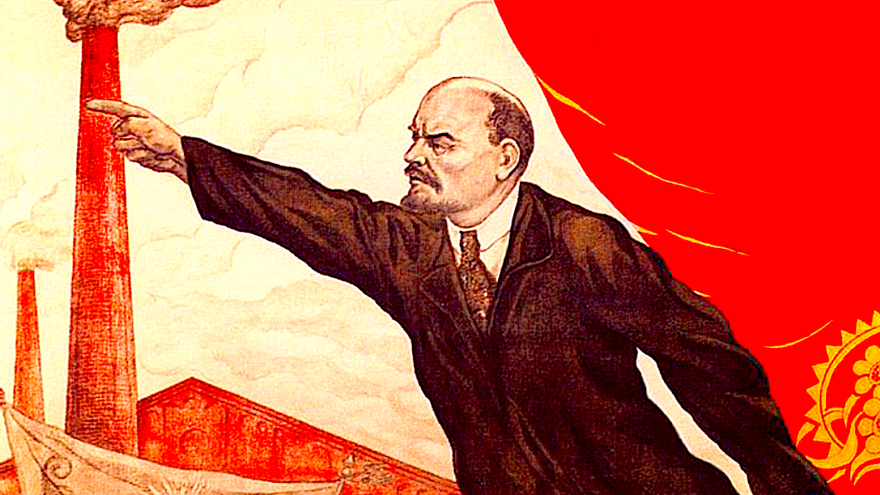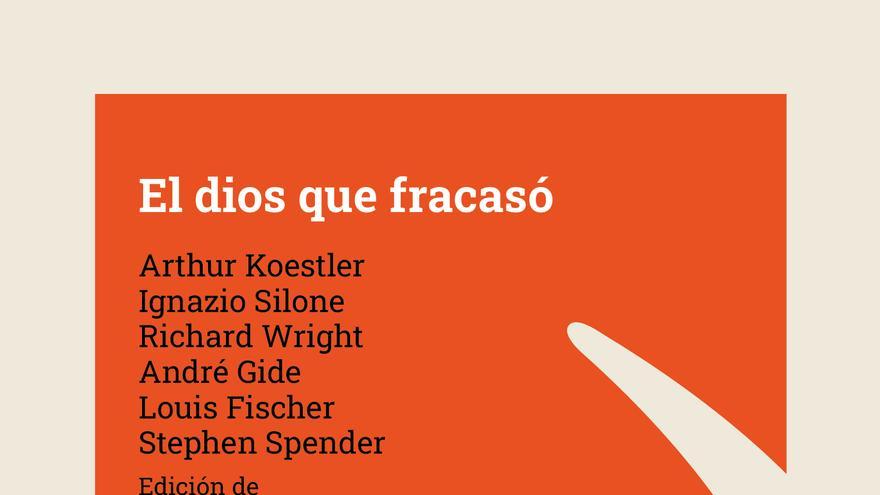
![]() 14ymedio, Xavier Carbonell, Salamanca, February 17, 2024 — Two communists are in Red Square, contemplating Lenin’s mummy, still fresh. At the dead man’s feet, a procession of grimy peasants shuffle past in veneration. One man says to the other, “I suppose you love Lenin.” The other nods. (Both had known Vladimir Ulyanov well.) “That being the case,” he continues, “how about we find two cans of gasoline and torch this dump along with the idol?” The other turns pale and begins to tremble. He suggests that his comrade forget such inflammatory ideas, drop the subject and, if possible, immediately leave the country.
14ymedio, Xavier Carbonell, Salamanca, February 17, 2024 — Two communists are in Red Square, contemplating Lenin’s mummy, still fresh. At the dead man’s feet, a procession of grimy peasants shuffle past in veneration. One man says to the other, “I suppose you love Lenin.” The other nods. (Both had known Vladimir Ulyanov well.) “That being the case,” he continues, “how about we find two cans of gasoline and torch this dump along with the idol?” The other turns pale and begins to tremble. He suggests that his comrade forget such inflammatory ideas, drop the subject and, if possible, immediately leave the country.
One of the men – the jokester – is Ignazio Silone, founder of the Italian Communist Party and then a diehard believer. The other is Lazar Schatzky, leader of the Russia’s Communist Youth League, who was persecuted by Stalin and ended up being shot in 1937. Let’s suppose that the joke has a moral and that the moral comes a few pages later in Silone’s own words: “To judge a regime, it is very important to know what it is laughing at.”
Like the Italian, the five other great writers featured in The God That Failed were communists and lived to tell the tale. The book, which Moscow banned shortly after it came out in 1949, is now being rescued from obscurity by a Spanish publisher, Ladera Norte. Assembled by British parliamentarian Richard Crossman, the collection of essays contains accounts from Arthur Koestler, Stephen Spender, Louis Fischer, Richard Wright, André Gide and Silone.
In only a handful of countries is The God That Failed not a historical document but rather an instruction manual. Cuba is one of those countries. The stories of the six authors, who describe communism as either a religion that they renounced or a drug that almost destroyed them, will strike a familiar chord on the island. It is a drug because it produces addicts. It is a religion because it offers eternal life, expects obedience and provides nothing. No matter how much time passes.

The idea for the book came from a conversation between Crossman and Koestler. The theme is the all-too-familiar disconnect between those who escape communism and those in from Western democracies who admire it. “Either you cannot or you do not want to understand,” summarized Koestler after recalling what led him to join the party in his youth only to leave it seven years later. Why does an intellectual become a communist when the regime is always so distrustful of writers, artists and philosophers? For Koestler, it is a matter of faith, not reason. Faith that a political doctrine can alter reality and end the world’s injustices, something that was easy to get excited about after Lenin’s triumph in 1917.
“All true faith is uncompromising, radical, purist,” warns Koestler. “The revolutionary’s utopia, which seems to represent a total break with the past, is always modeled after some image of Paradise Lost, of a legendary Golden Age.” Rebellion is the only way to believe in mythology again when one lives in “a disintegrating society thirsty for faith.”
On the other hand, there is the intrigue and secrecy, the false identities, the espionage, pamphlets and passwords, everything that constitutes – and Koestler’s analogy is a gem – “the mental world of the drug addict,” something difficult to explain to people who are not initiated. In the lethargic phase — when one has left all optimism behind, when all that is left is compliance — one discovers the necessary lie, the lie you want to believe, the lie that makes failure taste, rather unsuccessfully, less bitter.
Those who died, those who are dying in prison, is this what they sacrificed themselves for?
Silone, a man of a thousand stories, remembers an epiphany he had when locked up with a group of communists being persecuted by fascists: a fake painter, a fake tourist, a fake dentist, a fake architect and a fake young German woman. The long and incomprehensible story that Silone tells that night has a bitter end and begins with the injustices that he witnessed as a child. Maturity and the search for freedom led him to communist ideas but he became disenchanted after Stalin’s schemes to enforce his will. One night In Moscow, someone asked the question, “Those who died, those who are dying in prison, is this what they sacrificed themselves for? The unsettled, solitary, dangerous lives that we ourselves lead, foreigners in our own countries, is it all for this?”
Richard Wright, an African-American writer, was invited to meet some white communists from Chicago. His first reaction was one of suspicion but he decided to go anyway. After the initial idyllic phase, he discovered the factions, the struggles for power and the frustration of party members. Despite working as a street sweeper, a female comrade issued the verdict. “We keep a record of the problems we’ve had with intellectuals in the past,” she said. “It is estimated that only 13% of them remain in the party.”
We keep a record of the problems we’ve had with intellectuals in the past. “It is estimated that only 13% of them remain in the party.”
Gide, perhaps the best known of the writers in the book along with Koestler, was one of the pioneers in dismantling the Soviet myth. His essay, taken from his celebrated book Return from the USSR, was written after a 1936 trip to Moscow which opened his eyes. Officials hosted receptions and banquets that were designed to tempt him into saying flattering things about Russia. Meanwhile, people were going hungry and dying from the cold. The state, he wrote in his diary, exploited workers “in a very formal and twisted way so that they no longer knew whom to blame for their situation.” The conclusion did not earn him many friends in Moscow. “I very much doubt,” he wrote, “that there is any other country in the world, including Hitler’s Germany, that has so enslaved the intelligence and spirit, and that has terrorized more of its people, than the Soviet Union.”
Closing out the book are two pieces: one by the American writer Louis Fischer, who wrote a biography of Lenin; and Stephen Spender, who became disenchanted with communism after the Ribbentrop-Molotov Pact of 1939. Fischer explores how the party instilled a sense of guilt in its members (“How can you complain about the potato shortage when you were building socialism?”). Spender quickly soured on the “poetic purity” that Moscow promised.
A few years ago, a group of university students — some of whom were friends — thought they could reclaim the legacy of Jurassic communism that had excited Gide, and later Sartre and company. They venerated Leon Trotsky and Rosa Luxemburg, and even allowed themselves the luxury of idolizing Fidel Castro, their go-to talisman whenever problems arose, which says a lot about their mental state. They hated Cuba’s official party newspaper Granma and communist officials, starting with the current president Miguel Díaz-Canel. They languished between disciplinary councils and calls to order. It was they – whom I remember as ragged, smoking and spectral – who first came to mind as I was reading this book, which serves as an epitaph to them. Their god, in addition to failing, thrives on failure.
____________
COLLABORATE WITH OUR WORK: The 14ymedio team is committed to practicing serious journalism that reflects Cuba’s reality in all its depth. Thank you for joining us on this long journey. We invite you to continue supporting us by becoming a member of 14ymedio now. Together we can continue transforming journalism in Cuba.
